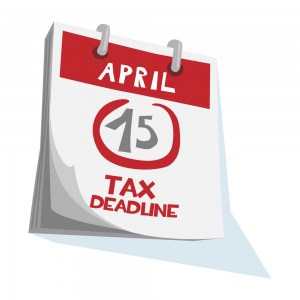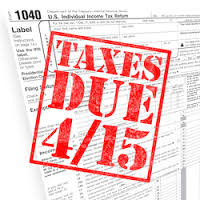Tax Penalties Set to Increase in 2017
According to the annual Bloomberg BNA report of projected tax rates, tax penalties are set to increase in 2017. The projected tax penalty increases will be applied pretty much across the board. They include penalties such as the Failure to File Penalty and the Failure to Pay Penalty imposed on individual and business taxpayers as well as significant increases in penalty assessments for tax preparers. Although the adjustments represent the expected annual increases due to inflation, they are also a result of the heightened focus by the IRS on collecting back taxes as well as tightening up the regulations governing tax preparation.
The Failure to File Penalty is one of those sharply affected by the 2017 tax penalty increases. Over the last few years this particular penalty has increased from a maximum of 25% of the tax amount owed to a maximum of 100% for 2017! Previously, a taxpayer who did not file a tax return was assessed a penalty amount of five percent of the tax amount owed for each month that the return was delinquent up to a maximum of 25% of the back tax balance. For 2017, any taxpayer who has not filed a tax return within 60 days of the filing deadline will be assessed a Failure to File Penalty of not less than $210 or 100% of the tax balance owed. The Failure to Pay Penalty is expected to hold at 0.5 % of the unpaid tax balance to be assessed each month beginning from the original due date of the return until the tax balance is paid the in full or is resolved through the negotiation of a tax settlement agreement. Likewise, the 2016 back tax balance of $50,000 used to define a “seriously delinquent” taxpayer is expected remain unchanged for 2017.
Another area which will see tax penalty increases in 2017 is that of penalties levied against tax preparers. These include penalties for various errors and omissions including Failure to Sign Return, Failure to Provide Taxpayer Identification Number, Failure to Provide Copy of Return to Taxpayer, Failure to File Correct Information Returns and Failure to Be Diligent in Determining the Child Tax Credit, the Earned Income Tax Credit and the American Opportunity Tax Credit. The maximum penalty for each of these errors will increase to $25,500 for 2017, up from a maximum of $25,000 in 2016. This represents an increase of 2%. Partnerships and S-Corporations will also see tax penalty increases in 2017. As of the first of next year, each partner or shareholder will be fined $200 for failure to file a corporate tax return or failure to file the correct information returns.
If you have tax questions or a tax debt you are unable to pay, our tax settlement professionals are happy to discuss your tax resolution options free of charge. For more information about our services, visit us today at www.professionaltaxresolution.com or call us at 877.889.6527. With over 16 years in the business of resolving tax debt, we have a thorough understanding of tax law together with the experience to know which settlement option will be the best fit for your specific set of circumstances.




